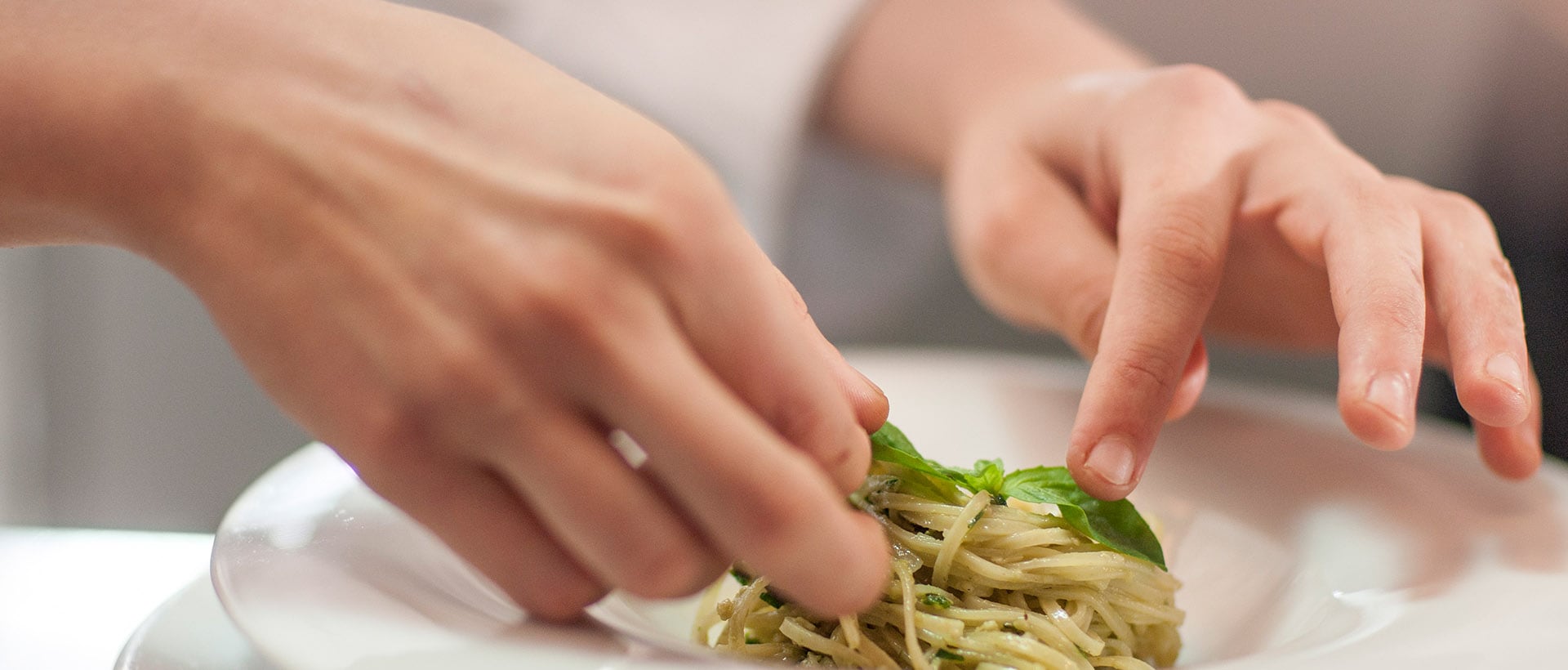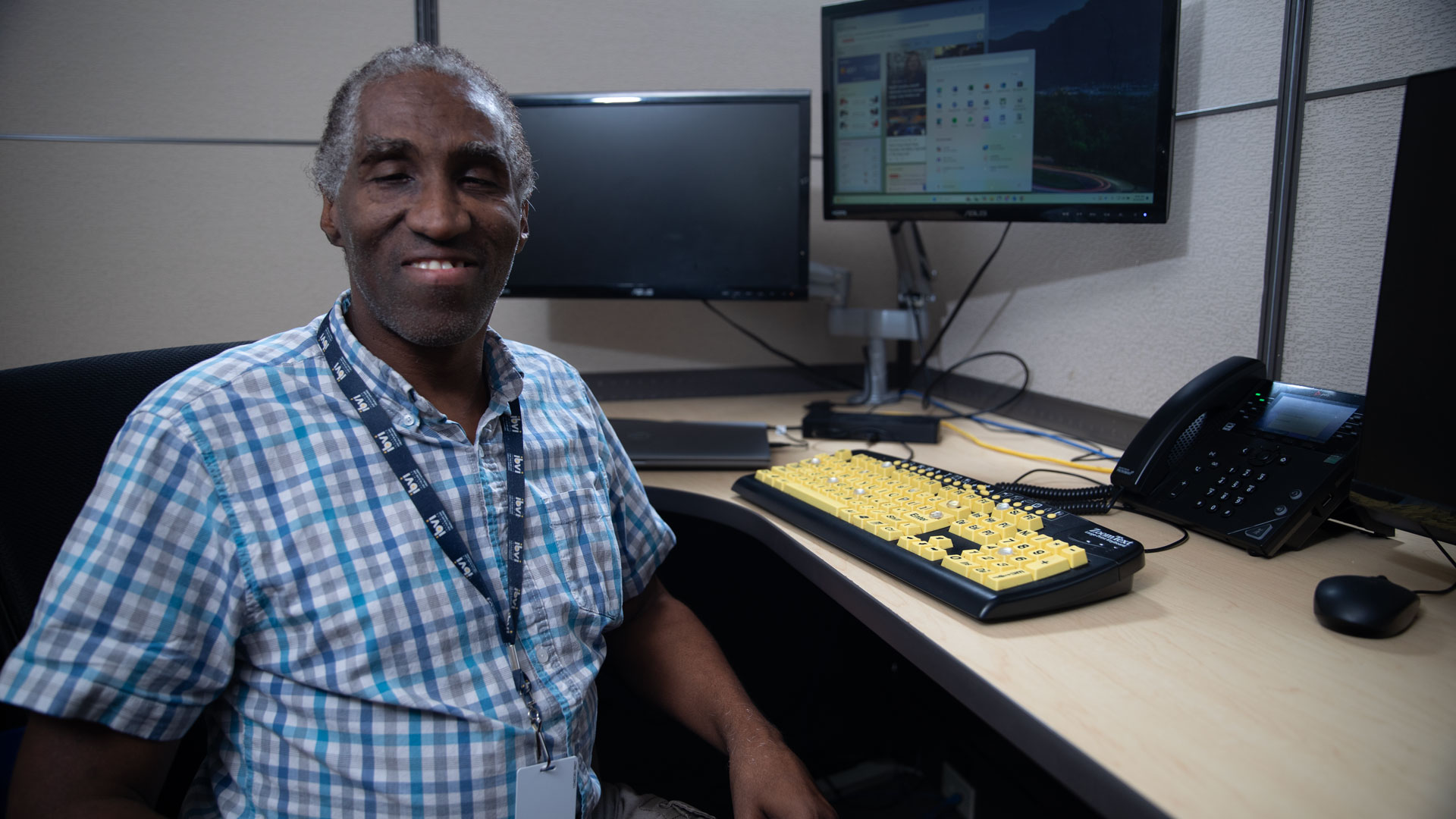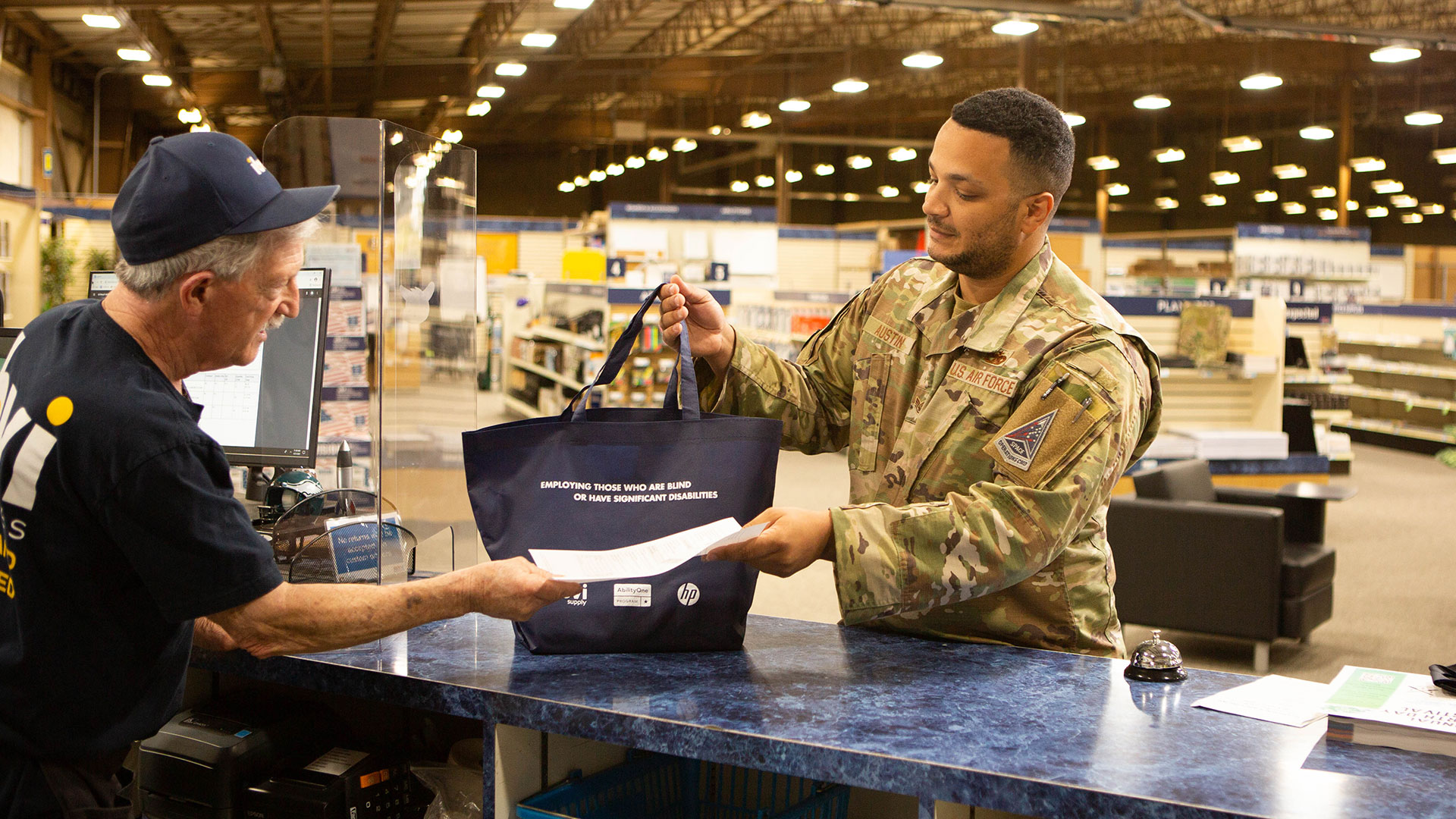Nearly every reality show on television has its “fan favorite” each season, and on Season 3 of MasterChef, Christine Ha became just that; capturing America’s heart from the moment she appeared on screen. Not only did her warmth and positive attitude draw in viewers, but for many people, it was also the first time they’d witnessed the determined, capable spirit that many blind people possess.
When asked about what life has been like since she won MasterChef in 2012, Christine says, “It’s been a whirlwind! My world was turned upside down right after the show ended. Everything was just so crazy, and I wasn’t used to it.” While adjusting to life in the public purview isn’t an easy feat, Christine is grateful for everything the experience has offered her. “I’ve had a lot of opportunities after MasterChef – all of it has been really amazing,” she says. “There’s just been so many things that I’ve got to experience.”
Given that she demonstrated such skill in the kitchen, it comes as quite a surprise to many that Christine’s background isn’t in the culinary arts. She attended the University of Texas in Austin where she majored in Finance and entered the corporate world after college. It was early in her career that Christine was diagnosed with Neuromyelitis optica, a condition which causes immune attacks on the optic nerves. In addition to losing her vision, Christine experienced temporarily paralysis in her body, causing her to leave work and go onto long-term disability. During this period, Christine says she was lucky to have a large support system.
“I had a lot of people that helped me through that time in my life… I’m very fortunate to have had a very good support network,” she explains. “I was lucky that I had really good friends that were willing to take the time to come and help me, and even just sit there sometimes and listen to me.”

After losing her mother at an early age, Christine says, “I felt like I had to grow up very quickly and become very independent. I did not like to depend on other people, but losing my vision forced me to learn how to depend on other people and accept other people’s care and love. I think that’s something a lot of people need to embrace and learn.”
While her experience was difficult, Christine approached the situation with optimism, explaining, “Even though losing my vision was not an easy time, I think it’s made me into a much more compassionate person. I’ve learned to really persevere through life and find creative solutions to adapt.”
The experience of losing her vision also helped her hone in on her true passion: writing.
“I found writing to be very therapeutic; I’ve always loved to write and I love to read,” she explains. “Writing naturally came to me when I was dealing with all of these health problems and I began journaling my experience with vision loss and NMO.”
She decided to go back to school to get her MFA in Creative Writing from University of Houston, explaining, “It took me a while to figure out what I was really meant to do in life. I knew the corporate world really wasn’t for me – there was just some part of my untapped creativity that was just pining to get out.”
Cooking, of course, was another outlet for Christine’s creativity – a hobby enjoyed in her spare time. She applied for MasterChef on a whim – a decision which changed her life.
Of course, we had to ask: are MasterChef challenges as stressful as they appear to be on TV?
“My honest answer is, it was that much harder than what you see at home,” Christine quips. “It is very stressful.”
She goes on to explain, “Everyone watching at home knows we have pretty difficult challenges. What they don’t know is sometimes, they wake us up at six in the morning and we’re not done wrapping until midnight.”
And, like with most reality shows, MasterChef participants are completely sequestered, making the situation that much more stressful.
“Imagine [being sequestered] for months of filming on top of having to deal with these challenges. It is a lot more stressful than it even looks,” says Christine, who pointed out that her season filmed for roughly two months.
“We’re allowed to call home once every three weeks for ten minute, monitored phone calls,” she explains. “They take our cell phones, they take our laptops – even our hotel room keys, so if you have to go do your laundry in the hotel, you have to call someone on the crew to come get you and escort you down.”
Another common question people have about MasterChef: is Gordon Ramsay really as tough as he’s portrayed on TV?
“The way he is on camera is exactly how he is in real life – but even bigger and even crazier when the cameras are off,” she explains. “He’s always really pushing people – I think that’s his thing. He’s a very hard worker himself, so he’s always pushing [contestants] to be the best that we can be.”
However, she points out that Gordon Ramsay might be just a bit more lenient with MasterChef contestants than he is with the professional cooks that compete on Hell’s Kitchen.
“On MasterChef, we’re all amateur cooks. I think he plays more a mentoring role, so he’s not as mean as he is on Hell’s Kitchen. But if we don’t perform well, he will say it. He speaks his true mind. I think there’s something to say for people who are honest, because that’s what we need to improve ourselves and our craft.”
Despite his strict demeanor, Christine says that Gordon Ramsay actually has great sense of humor. “He was always cracking jokes and making us laugh. He’s very funny!”

These days, Christine is working on a Canadian cooking show called Four Senses, currently in its fourth season. The show – which she co-hosts with Carl Heinrich, winner of Top Chef Canada – provides cooking tips for the visually impaired while also appealing to novice cooks.
“There are tidbits that are health tips geared towards healthy eyesight, and tips and tricks on how to cook with vision impairment,” she explains.
In addition, Christine is busy putting the finishing touches on her highly-anticipated second cookbook. Her first cookbook, Recipes from My Home Kitchen: Asian and American Comfort Food, was released in 2013 to rave reviews.
While her life has changed dramatically since she first lost her vision, Christine says, “I do understand that there’s a bigger picture to [my success]. I think the purpose of my position is to have a platform off which to advocate for the vision impaired, the disabled and the socially marginalized.”
When asked if she had any words of advice for people who may be just starting to lose their vision, she says, “It’s difficult. “It’s okay to be upset about it. It’s okay to grieve for your vision, because you’re losing it. You have to go through the grieving process like with anything else, so it’s OK to feel sorry for yourself and to be upset and to cry and be mad about it. But, I also think that at some point after that, you need to move on to the next step.”
She adds, “Something I realized while I was losing my vision is that the world doesn’t stop for you – it keeps on rotating. You can either drop out of society or you can make the very conscious decision to get up and put one foot forward and try to start your life over with vision loss and with this new way of living life. It’s really about learning how to adapt.”
Christine is careful to emphasize that her personal experience with vision loss may be vastly different from others. However, she encourages people to look within themselves to find their source of determination.
“I think a lot of people have much more strength and willpower within them than they give themselves credit for,” she says. “Oftentimes, we put ourselves down and think ‘I don’t know how I’m going to make it through this’. That’s all very normal – that’s human nature, but I’ve known people who have done even more amazing things with even more obstacles than myself and if they’ve been able to do it, I’m sure that a lot of people have that strength within themselves to do the same thing. It’s just a matter of making that decision to get up and figure out how to do it.”
“I’ve been lucky to be the voice for a lot of the people who may not have had the ability to raise awareness for their situation – that’s what keeps me going,” she adds. “Knowing that I’ve been able to help people – that is the best thing of all. It’s better than winning the prize and the money and the cookbook deal. That’s just the best feeling and the most amazing thing that can come out of all of this. I feel very fortunate.”
Interested in reading more from Christina Ha?
Check out her website, www.theblindcook.com, where she shares recipes, cooking tips and updates. She also maintains an active presence on social media, including YouTube and Twitter: @theblindcook.
Those interested in checking out her show Four Senses may do so worldwide via Accessible Media Incorporated’s website: www.ami.ca.


